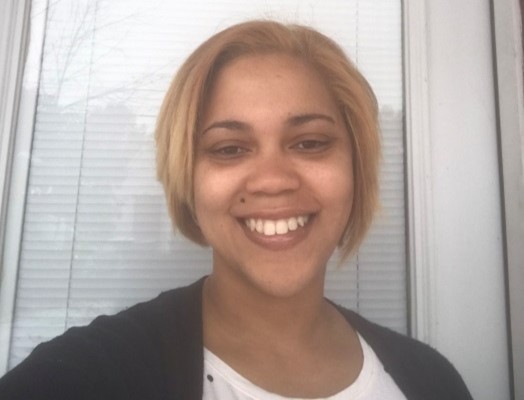Commercial Tobacco Use
Tobacco Topics
- Behavioral Health and Commercial Tobacco
- COVID-19 and Commercial Tobacco
- E-cigarettes and Vaping
- Flavored Commercial Tobacco Products
- Menthol Commercial Tobacco Products
- Nicotine and Nicotine Dependence
- Secondhand Smoke and Aerosol
- Traditional and Sacred Tobacco
Related Topics
Contact Info
Community at the Heart of Commercial Tobacco Prevention
Jonale Ward of Pillsbury United Communities views tobacco-free living as one part of whole health and wellness.
2/1/2021
When community members in North Minneapolis who used tobacco were asked what makes it harder to quit, many pointed to a lack of support from friends and family when they tried to stop. Others said that, given all the stress and hardship in their lives, cigarette smoking was a way to take time for themselves—the only time they could relax. They shared the complex influences and reasons why they did or did not smoke, voicing what the researchers at Pillsbury United Communities (PUC) had suspected: commercial tobacco use was about more than just tobacco.
 That’s why PUC’s approach to stopping commercial tobacco use is holistic, considering the whole person, and integrated into their agency’s existing programs that provide support and services for health and wellness. “People need housing, food security, and job placement as well as health,” noted Jonale Ward. “And supporting them in being healthy may need to begin with managing blood pressure, stabilizing their diabetes, or connecting them to mental health services. These conditions are stressors—both physical and mental—that make it easier to fall into unhealthy behaviors. We don’t just look at the problem they may have with tobacco.”
That’s why PUC’s approach to stopping commercial tobacco use is holistic, considering the whole person, and integrated into their agency’s existing programs that provide support and services for health and wellness. “People need housing, food security, and job placement as well as health,” noted Jonale Ward. “And supporting them in being healthy may need to begin with managing blood pressure, stabilizing their diabetes, or connecting them to mental health services. These conditions are stressors—both physical and mental—that make it easier to fall into unhealthy behaviors. We don’t just look at the problem they may have with tobacco.”
Ward is one of two Community Health Workers (CHWs) at North Market, a social enterprise of PUC, a nonprofit founded in 1879 to support historically marginalized and underinvested groups across the community. The organization operates programs, neighborhood centers, and social enterprises that connect more than 55,000 individuals and their families to community services each year.
 A CHW is a trained public health worker who is a trusted member of and/or has a close understanding of the community they serve. This trusting relationship enables the worker to serve as a link between health/social services and the community, and improve the quality and cultural competence of service delivery. Ward and Tiffany Miller assist individuals and the community through activities such as referring tobacco users to the Minnesota Quit Partner program, and other outreach, community education, social support and advocacy work.
A CHW is a trained public health worker who is a trusted member of and/or has a close understanding of the community they serve. This trusting relationship enables the worker to serve as a link between health/social services and the community, and improve the quality and cultural competence of service delivery. Ward and Tiffany Miller assist individuals and the community through activities such as referring tobacco users to the Minnesota Quit Partner program, and other outreach, community education, social support and advocacy work.
PUC is supported in its community-based efforts as one of eleven recipients of a Tobacco-Free Communities (TFC) grant from the Minnesota Department of Health. TFC is a program to reduce smoking, prevent youth commercial tobacco use, and address tobacco-related disparities in Minnesota. The TFC grant program is part of a growing movement to promote community-driven commercial tobacco prevention and control activities and strategies.
Ward works at PUC’s North Market location, which opened in 2017. “It’s more than a grocery store; it’s a community center,” observed Ward. “There’s a Wellness Resource Center staffed by North Memorial Health, and a community space, there are fitness classes, cooking classes, access to social services, and more.”
Before the onset of the Covid-19 pandemic, PUC organized a series of “Quit Lounge” events at the Wellness Resource Center, providing an educational, supportive, smoke-free environment where people could also explore the complex emotions and circumstances underlying their smoking behavior. “You know, a cigarette sitting on a shelf is not a problem; the person purchasing it may be feeling a gap they are trying to fill. It could be stress-related, it could be social service- or sexual health-related,” said Ward. “If you can find out the reason why [then you can address that].” Participants receive information about the harms of tobacco use, as well as stress management, strategies for self-care, and mindfulness, often with the help of Black wellness practitioners from the community.
Ward noted that some people have come back saying they quit “almost without realizing it” because they were able to deal with unresolved trauma. “[Tobacco use] is a coping mechanism, so just dealing with the [underlying] issue you can see the change happen. You see the light bulb come on.”
Ward hopes to continue this type of work in a new format that protects participants from the pandemic, and builds on the organization’s supportive, holistic approach. “It’s so encouraging to see people take the first step, to see the community come out and tell their stories.”
Download this story: Community at the Heart of Commercial Tobacco Prevention (PDF)
More stories about community grantees
The Tobacco-Free Communities Grant Program funds local community grants and technical assistance and training grants that aim to reduce and prevent youth tobacco use and address tobacco-related disparities in Minnesota by promoting community-driven tobacco prevention and control activities and strategies.
Learn more about the Tobacco-Free Communities Grant Program and read grantee stories featuring their work throughout Minnesota communities.